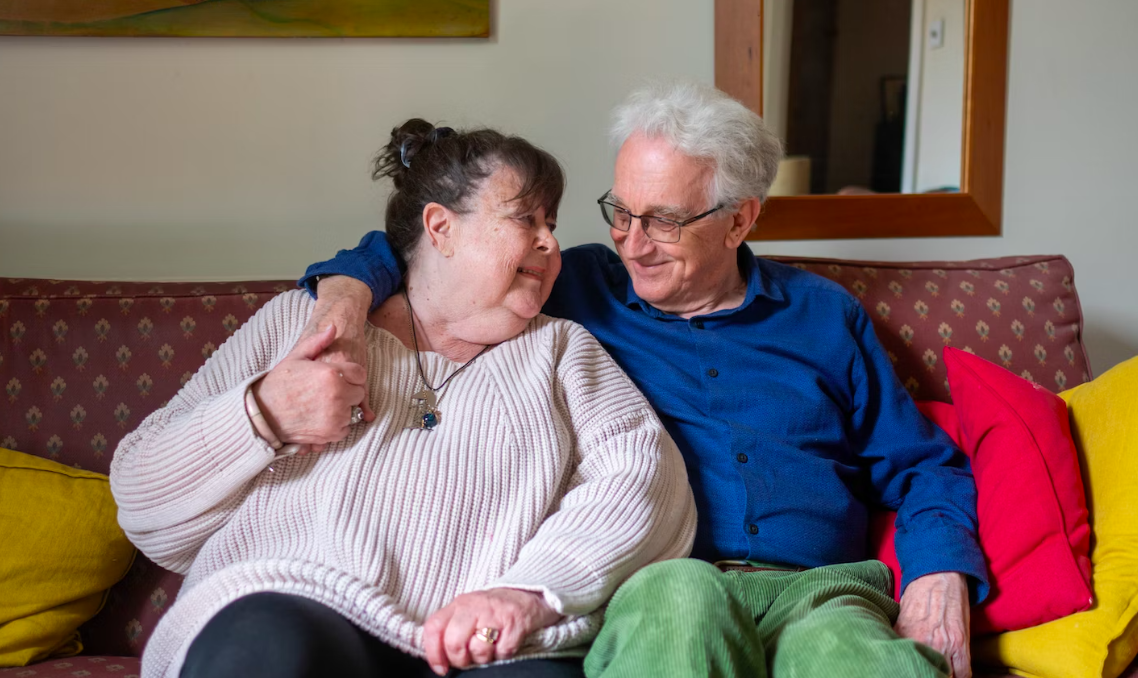Being in a bad relationship can take a severe toll on your emotional and mental well-being. Unfortunately, it’s not always easy to recognize the warning signs when you are deeply involved with someone. Whether you are dating, engaged, or married, identifying the signs of a toxic relationship is crucial for your happiness and personal growth. In this article, we will explore 15 telltale signs that you are in a bad relationship and need to take action to improve your situation.
Signs You Are In A Bad Relationship
1. Constant Negativity
In a bad relationship, negativity becomes the norm. Frequent arguments, put-downs, and pessimistic attitudes characterize the interactions between partners. It festers in the form of harsh criticism, belittling remarks, and endless complaints. Each day becomes a battle against pessimism, eroding self-esteem and happiness. Communication deteriorates into bitter arguments, lacking any constructive resolution. The toxic cycle persists, draining both partners’ energy and love. Breaking free from this destructive pattern is vital for personal growth and finding a healthier, happier path forward.
Constructive criticism can be healthy in a relationship, but when it turns into constant negativity, it can lead to emotional damage and a toxic environment.
2. Lack of Communication
Effective communication leads to successful relationship. In a bad relationship, partners may avoid discussing their feelings or concerns, leading to misunderstandings and unresolved issues. Unspoken emotions and unaddressed issues breed resentment and misunderstandings. Silence replaces dialogue, causing emotional distance and isolation. Important matters remain unresolved, and feelings go unheard, leading to further disconnection. The lack of openness stifles growth and prevents the relationship from evolving.
The lack of open communication can create a rift between partners and make it difficult to address problems or work towards solutions. Rebuilding trust and fostering honest communication is crucial to salvaging a failing partnership or recognizing the need to part ways for the sake of personal well-being.
3. Emotional or Physical Abuse
Abuse is a sign of a bad relationship. No one should tolerate being mistreated or disrespected by their partner. Seek professional help in case you find yourself in an abusive relationship. Emotional abuse leaves invisible scars through manipulation, gaslighting, and constant degradation, shattering self-worth and confidence. Meanwhile, physical abuse’s visible marks are equally damaging, instilling fear and powerlessness.
Both forms of abuse cripple trust and safety, creating a vicious cycle that perpetuates suffering. Escaping such a toxic dynamic requires immense courage, support, and understanding that nobody deserves such torment.
4. Constant Feeling of Unhappiness
A healthy relationship lead to joy in life and relations. If you consistently feel unhappy, unfulfilled, or drained when with your partner, it may indicate that you are in a bad relationship. The emotional turmoil takes a toll, leaving one trapped in a cycle of sadness and discontent. Moments of joy become fleeting as negativity dominates. Efforts to salvage the relationship often prove futile, deepening the sense of despair. Recognizing this persistent unhappiness is crucial in finding the strength to seek healthier alternatives, prioritizing self-love, and breaking free from the suffocating grasp of an unhappy partnership.
Pay attention to your emotions and reflect on whether your relationship is contributing positively to your overall well-being.
5. Lack of Support
In a bad relationship, there is a lack of emotional support and encouragement from both partners. Partners should be pillars of strength for each other, but in this toxic dynamic, they become emotionally distant or dismissive. Dreams and aspirations go unacknowledged, and burdens are shouldered alone. The lack of support erodes trust and intimacy, breeding resentment and bitterness. Breaking free from this stifling environment allows individuals to rediscover their worth and seek relationships that foster genuine care and encouragement.
If your partner dismisses your dreams, goals, or achievements, and shows little interest in your well-being or success, it can lead to feelings of isolation and worthlessness.
6. Controlling Behavior
A controlling partner may exhibit possessiveness, jealousy, and an overwhelming need to dictate your actions and choices. The controlling partner imposes restrictions, monitoring every move, and dictating decisions, eroding autonomy and self-esteem. Trust and respect diminish, replaced by a constant power struggle. This toxic behavior isolates the victim from friends and family, fostering dependency. Escaping this oppressive cycle is essential to reclaiming independence and finding a healthier, balanced partnership built on mutual trust and respect.
A healthy relationship is built on trust and mutual respect, whereas a bad relationship can become suffocating due to controlling behavior.
7. Absence of Trust
Trust is the foundation of any successful relationship. When trust is broken or absent, it can lead to insecurity and constant suspicion. A lack of trust can also cause unnecessary drama and damage the emotional connection between partners.
8. Unresolved Conflicts
In a bad relationship, conflicts are frequent and often left unresolved. Doubt and suspicion poison every interaction, making intimacy impossible. Past betrayals linger, haunting the present, and preventing any hope for a future together. The lack of trust stifles open communication, leaving both partners emotionally distant.
Unresolved conflicts can breed resentment and create a toxic atmosphere where communication breaks down and intimacy suffers. Breaking free from this cycle requires honest reflection and, if possible, rebuilding trust through open dialogue and genuine efforts to heal old wounds.
9. Emotional Distance
A noticeable emotional distance between partners is a significant red flag. When emotional connection fades, it becomes challenging to maintain intimacy and understand each other’s needs and feelings.
10. Ignored Boundaries
A healthy relationship respects and values each partner’s boundaries. In contrast, a bad relationship may involve one partner consistently crossing the other’s boundaries without regard for their feelings or autonomy.
11. Disregard for Each Other’s Feelings
Partners in a bad relationship may belittle or dismiss each other’s feelings and emotions. This lack of empathy and understanding can lead to emotional disconnection and further harm the relationship.
12. Stagnation and Lack of Growth
A bad relationship often lacks growth and progress. Partners may feel stuck and unfulfilled, and the relationship remains stagnant with no signs of improvement or positive change.
13. Feeling Alone in the Relationship
If you feel alone and unsupported even when you are with your partner, it’s a sign that you are in a bad relationship. A strong relationship should make you feel valued, loved, and connected.
14. Repetitive Cycles of Hurt
In a bad relationship, harmful patterns and cycles of hurtful behaviors may emerge and continue to repeat. These cycles can erode trust and make it difficult to break free from the negative dynamics.
15. No Respect for Individuality
A healthy relationship celebrates and respects each partner’s individuality, interests, and values. In contrast, a bad relationship may suppress individuality and demand conformity, causing resentment and unhappiness.
Recognizing the signs of being in a bad relationship is the first step towards addressing and resolving the issues at hand. If you find yourself experiencing constant negativity, lack of communication, abuse, or other signs mentioned above, it’s essential to seek support and take action to improve your situation. Remember, a healthy and fulfilling relationship should uplift and empower both partners, nurturing growth, trust, and love.




